Capital Gazette Shooter Found Criminally Responsible for Murders, Will Be Sentenced to Prison
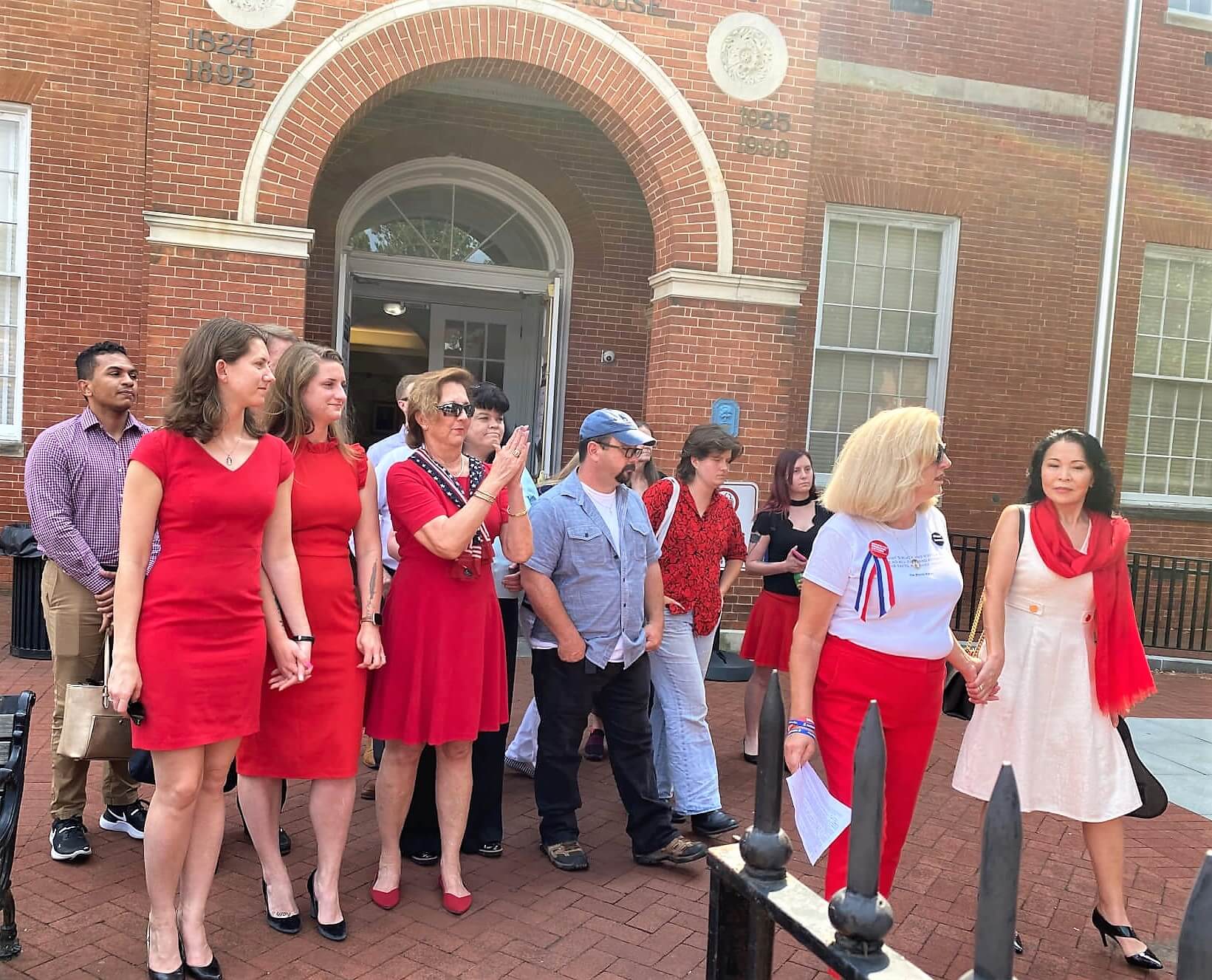
After approximately two hours of deliberation, a jury found the gunman who pleaded guilty to the 2018 murders of Capital Gazette employees Gerald Fischman, Robert Hiaasen, John McNamara, Rebecca Smith and Wendi Winters criminally responsible for his actions Thursday — offering bittersweet closure to survivors and families who have struggled to move on.
“When I buried my husband, I put a Constitution book in his pocket because I [was] hoping there’s justice, and today’s that justice day,” said Gerald Fischman’s widow, Erica Fischman. “I’m really glad for that.”
“It’s a very painful three years passed, and finally my husband’s … soul [can] have a little rest.”
This verdict means that Jarrod Ramos will almost certainly spend the rest of his life in prison rather than being committed to a state-run psychiatric facility.
Cases where a defendant enters a “not criminally responsible” plea — Maryland’s version of an insanity plea — are split into two trials: the first to determine guilt, and the second to determine if the defendant was unable to understand the criminality of his behavior or conform to the standards of the law because of a mental disorder.
Ramos pleaded guilty to all 23 charges against him in October 2019, just two days before jury selection was set to begin.
The trial to determine his criminal responsibility was postponed a handful of times, several because of the pandemic, before it began on June 29 — three years and one day after the anniversary of the deadly attack.
In trials determining criminal responsibility, the burden is on the defense to prove by a preponderance of the evidence — or more likely than not — that the defendant was not sane at the time of the crime.
At a news conference after the verdict was delivered, Anne Arundel County State’s Attorney Anne Colt Leitess (D) said that the prosecution overwhelmingly disproved the defense’s argument that he was mentally incapacitated and made it clear to the jury that this attack was about “revenge.”
“The state showed that he was criminally responsible; that even though he may have had a mild personality disorder, he knew what he was doing; that his conduct was wrong; he appreciated the criminality,” she said. “We were able to show that he understood what he was doing at the time and he could conform his behavior. And I think the jury saw that and rendered a verdict in under two hours.”
After the jury’s foreperson declared Ramos criminally responsible, survivors and victims’ family members present in the courtroom let out sighs of relief as though they’d been holding their breath for the past three years.
Public defender Katy O’Donnell asked for each juror to verbally confirm their verdict individually.
Asked by a clerk if the verdict he delivered was his personal verdict, the foreperson said, “Yes, it is.”
All 11 remaining jurors responded, one by one: “Yes, ma’am.”
Wendi Winters’ sister, who had attended all 12 days of the trial, silently clapped as the jurors left the courtroom.
Ramos sat stone still as Judge Michael Wachs explained to him that he had 10 days to submit a motion for a new trial.
“Do you understand that, Mr. Ramos?” Wachs asked.
Ramos, who has been masked and largely non-communicative throughout the course of the proceedings — even with his attorneys — stared forward. He did not acknowledge Wachs, at all.
Wachs said that he intends to hold Ramos’ sentencing hearing in approximately eight weeks.
Ramos is facing five life-without-parole sentences for the murders of Fischman, Hiaasen, McNamara, Smith and Winters; a sentence of life with the possibility of parole for the attempted murder of photojournalist Paul Gillespie; six sentences of up 25 years for first-degree assault of the survivors of the attack; and an additional 20 years for each of 11 counts of using a firearm during a crime of violence.
O’Donnell declined to comment when asked if Ramos planned to file an appeal.
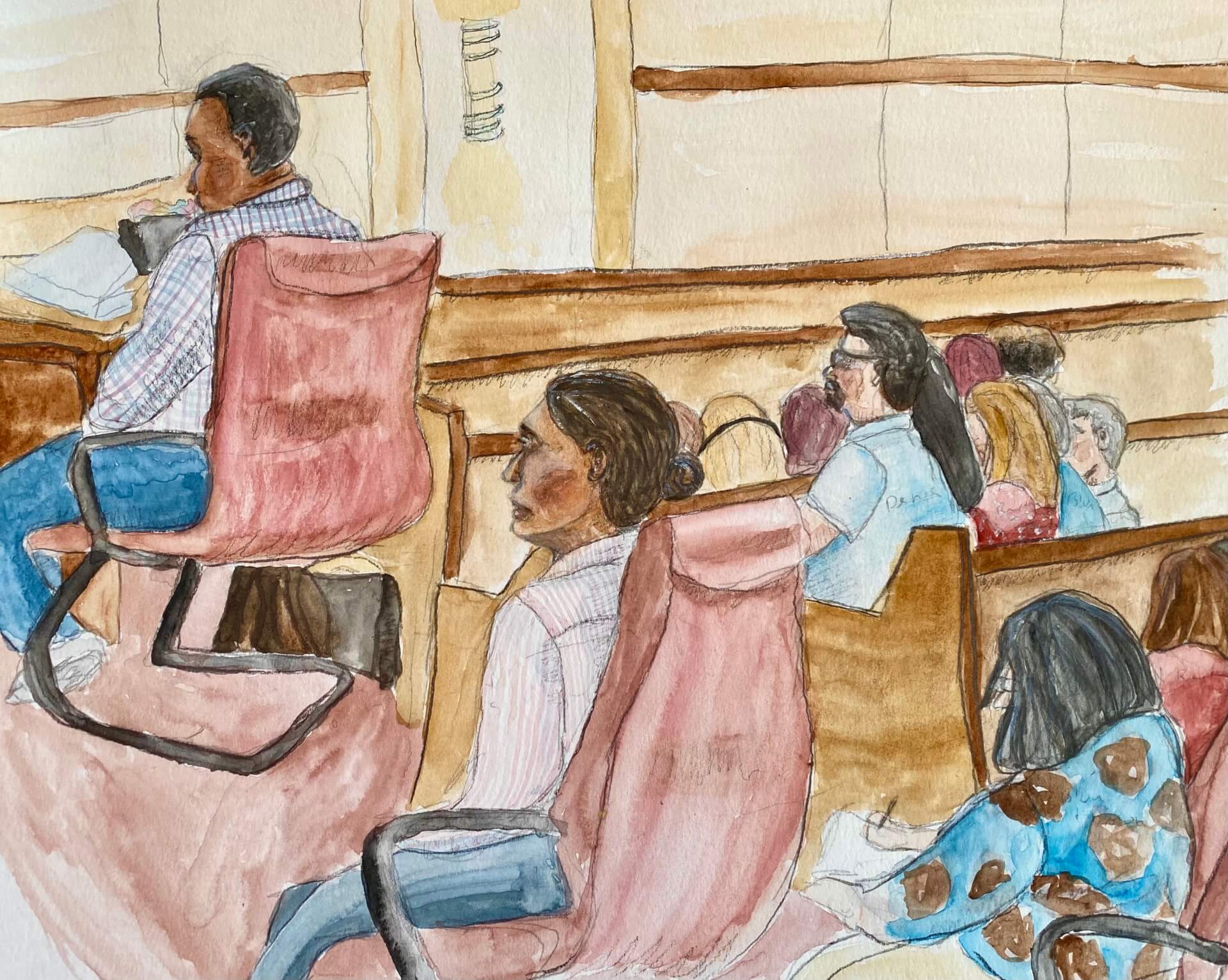
Survivors and family members of Capital Gazette shooting victims Gerald Fischman, Robert Hiaasen, John McNamara, Rebecca Smith and Wendi Winters were in court Thursday when a jury found the gunman criminally responsible for his actions at the time of the 2018 attack. Sketch by Hannah Gaskill.
Closing arguments
Ramos’ vendetta against the newspaper dates back to 2011 when a column was published about his guilty plea in a harassment lawsuit.
After its publication, Ramos waged years’ worth of legal actions against the Capital Gazette, its former editor, the columnist, the former high school classmate he harassed and others.
After several appeals, his case was dismissed in 2015.
Dr. Sameer Patel, a forensic psychiatrist at Clifton T. Perkins Hospital Center who evaluated Ramos after the shooting, testified Wednesday that this is when Ramos planned to “do something big” to exact revenge for the times he felt he’d been wronged.
Ramos first planned to target the Court of Appeals, which struck down his lawsuit, intending to target judges and their families, but determined the likelihood of his death was high because the building had guards.
That’s when Ramos turned his eyes towards the Capital Gazette.
During her closing argument Thursday morning, Leitess laid out a timeline that spanned the two years prior to the June 28, 2018, attack.
Ramos decided to target the Capital Gazette newsroom in January 2016, the same year the Twitter account he used to threaten employees went dark.
On a snowy day in 2017, he showed up to the office to scout out the layout of the suite, taking pictures and video with a camera phone. After that, he began to gather supplies: he purchased a left-handed Mossberg 12-gauge shotgun, ammunition, a shoulder sling, safety goggles and two Barracuda brand door barricades — one to prevent Capital Gazette employees from running out of their office through the back door, and another to prevent employees from a neighboring office to come to their defense.
In May of 2018, Ramos had his dying cat euthanized and sold his car.
In the days before the attack, he rented a car, spent his last $1,500 on a lifetime chess club membership, cut his hair and shaved his beard.
On the day of the shooting, Ramos entered the building wearing a shirt and tie, which he quickly discarded.
He blasted through the office doors at 2:33 p.m. and killed five people. He then discarded his gun away from his hiding spot, tweeted from an employee’s computer, called 911 to tell them the shooting was over and hid under a desk.
Ramos was apprehended by police at 2:51 p.m., 19 minutes after the start of the attack.
He told Patel that he never planned to escape once the attack was over and attempted to look like a victim.
Expert witnesses for the defense and prosecution have diagnosed him with five different mental disorders.
Defense witness Dr. Dorothy Otnow Lewis, a clinical psychiatrist who specializes in violence, testified that Ramos suffers from autism spectrum disorder, obsessive compulsive disorder and delusional disorder. She concluded that the diagnoses rendered him unable to appreciate the criminality of his actions.
Patel diagnosed Ramos with narcissistic personality disorder and schizotypal personality disorder and said that his level of planning and ability to conform his behavior to the standards of the law up to mere minutes before the attack and in interactions with police immediately after demonstrated his criminal responsibility.
The defense’s closing argument hinged upon Ramos’ delusions, particularly that he had become infamous because of the column and felt he couldn’t escape the world’s judgmental eye.
Public defender Matthew Connell hearkened back to the day of the shooting when Ramos seemed surprised that police didn’t know who he was.
“Mental health is real,” said Connell. “Jarrod Ramos’ mental health is real. Sometimes it’s hard to define, but you know it when you see it.”
He quoted Ramos:
“You don’t know who I am? You don’t know who I am? You don’t know who I am?”
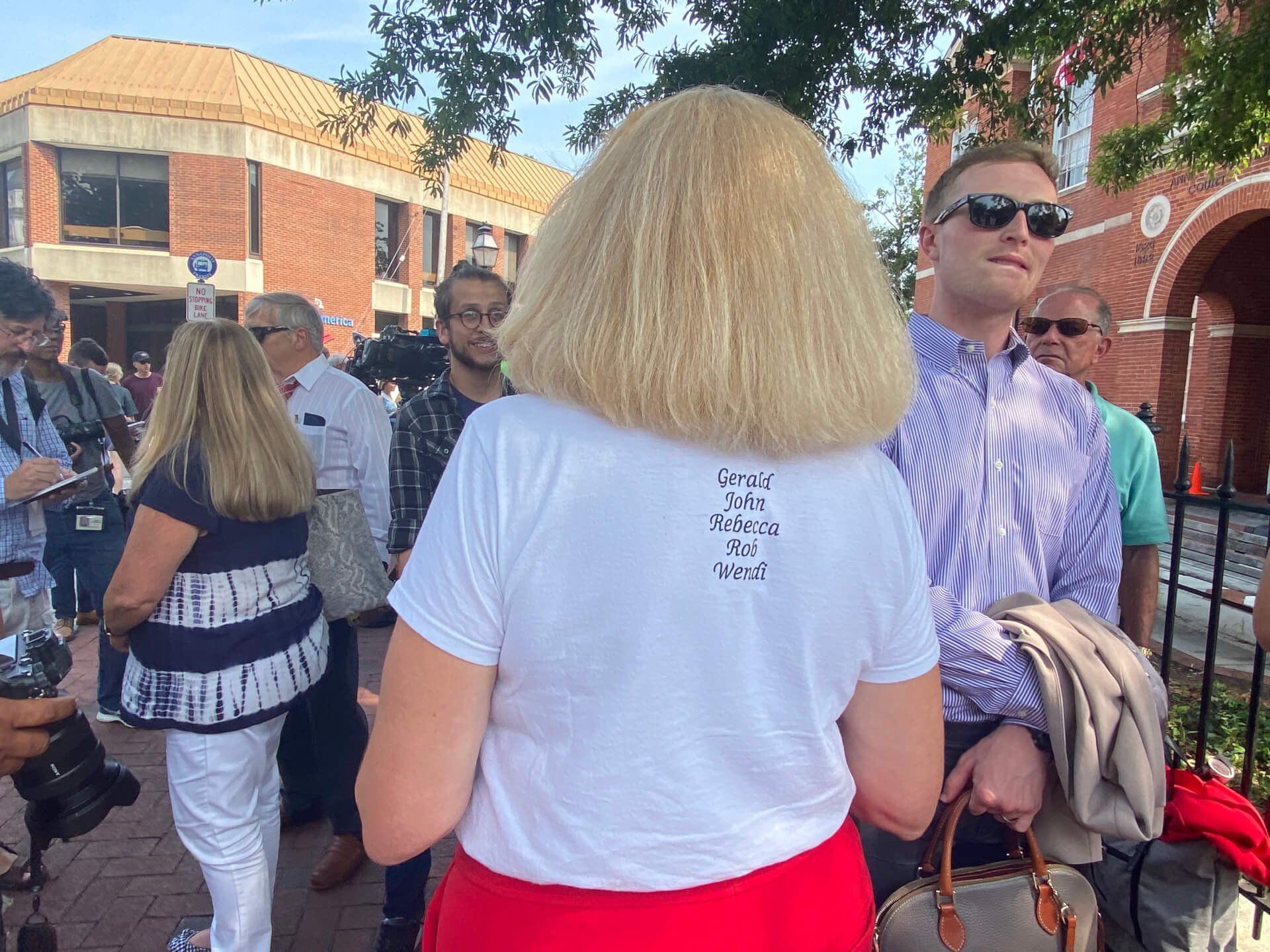
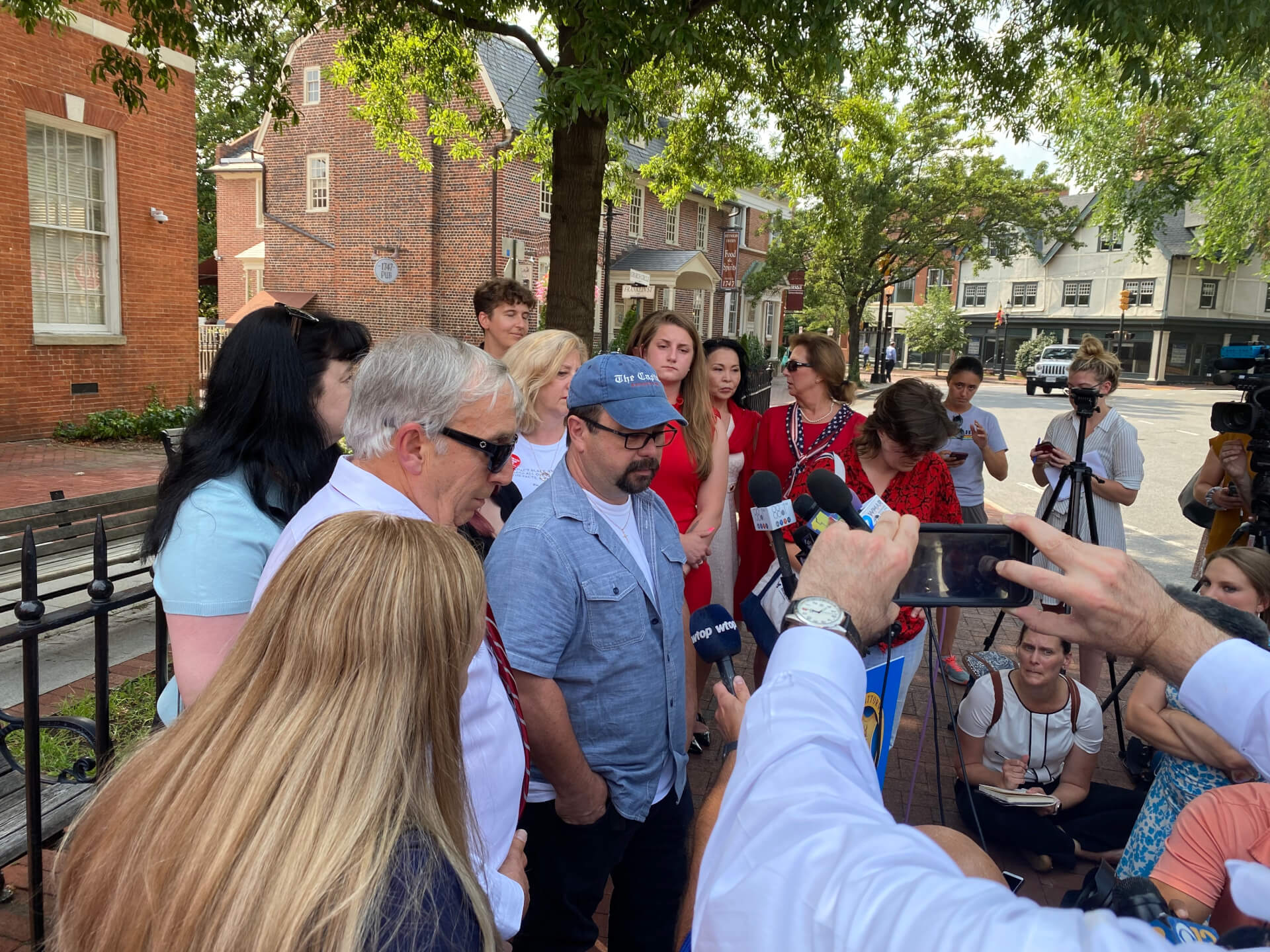
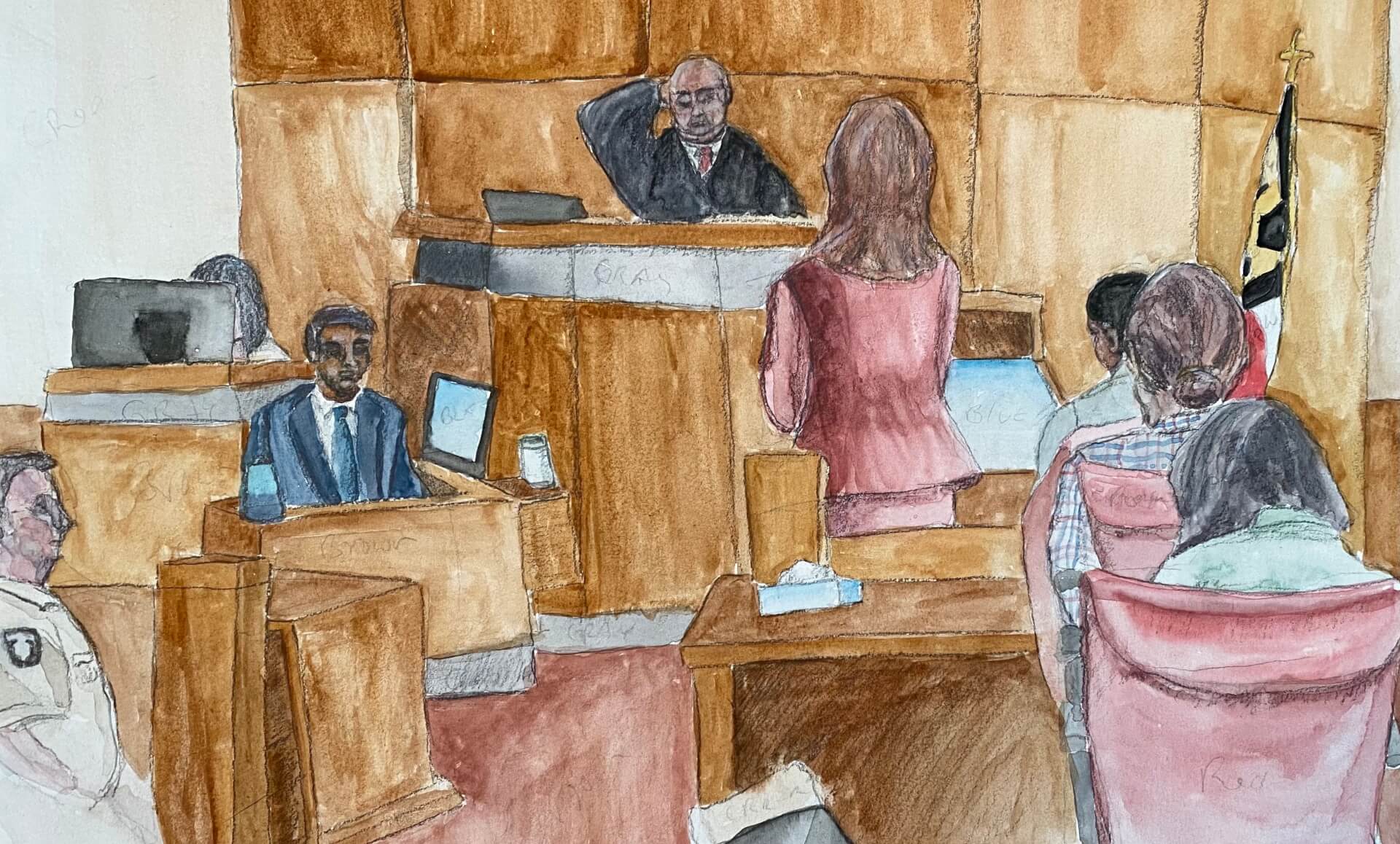
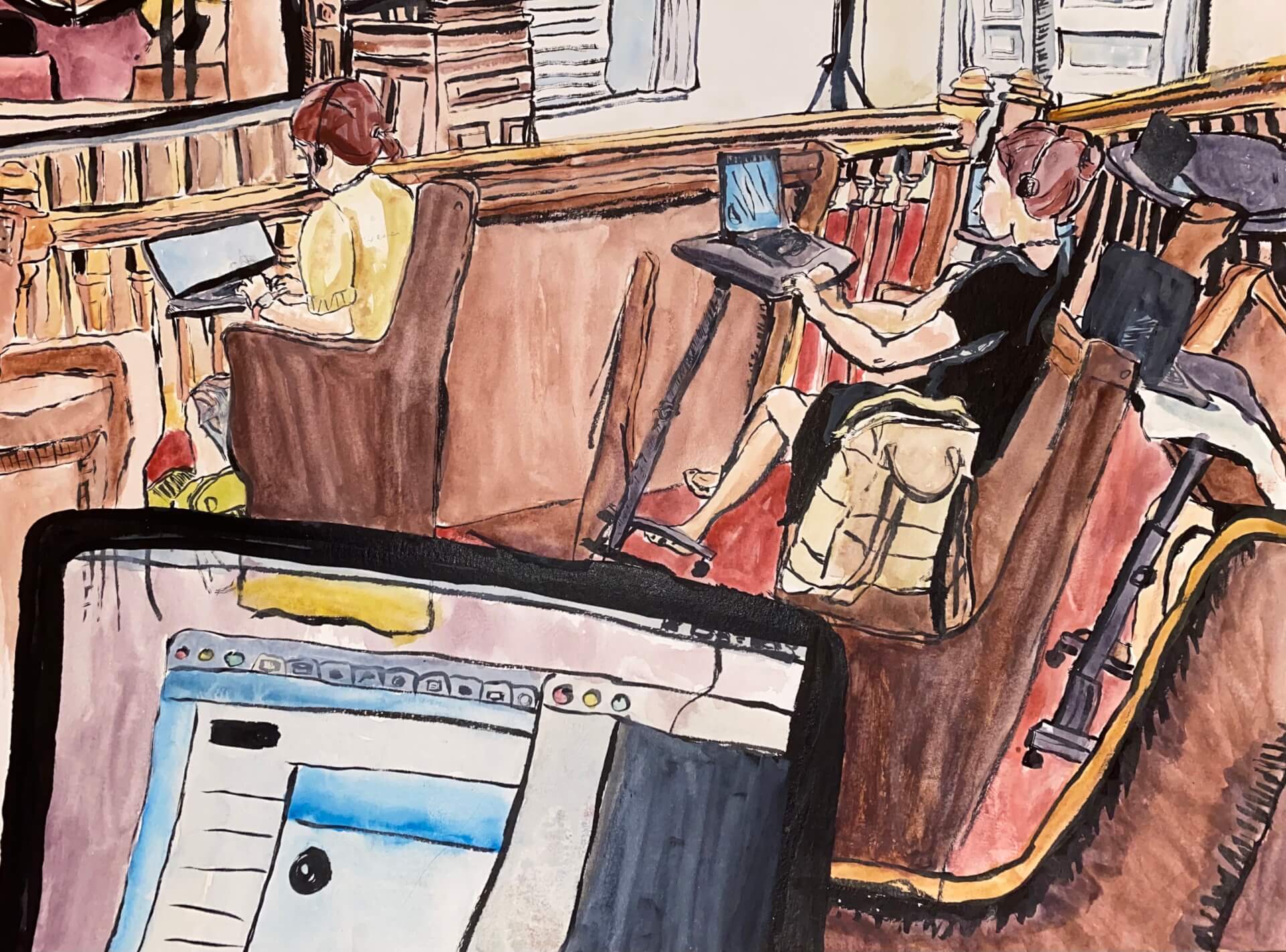

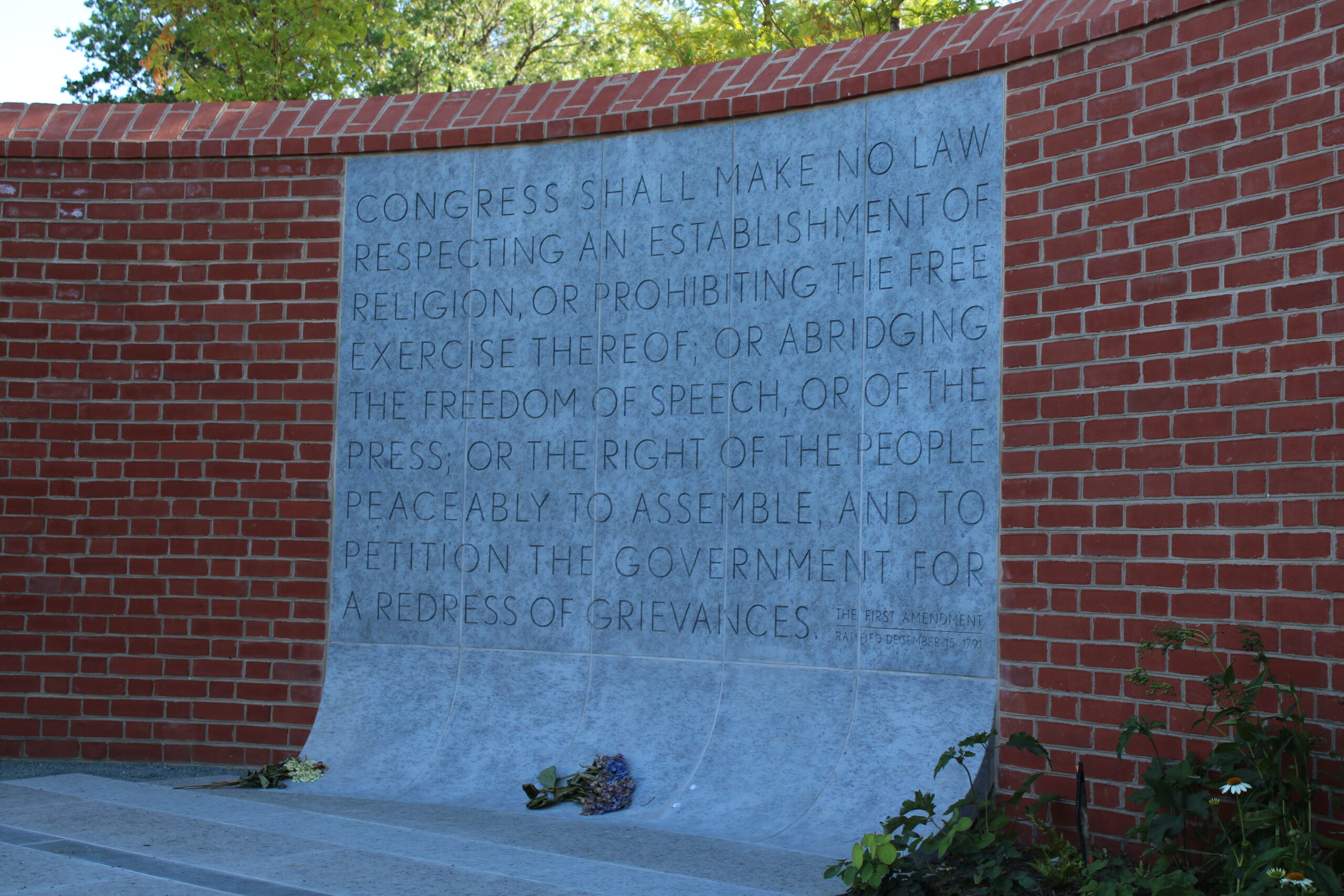






Elation after the verdict
When Leitess left the courtroom, survivors and grieving families greeted her and Assistant State’s Attorney David Russell with applause.
Her eyes grew glassy.
Addressing them outside of the courtroom before running off to a news conference, Leitess talked about what Ramos had tried so hard but failed to take away.
“He tried to take away what Wendi did,” she said, referencing how Winters stormed towards Ramos during the attack in an attempt to stop him.
In interviews with Patel, Ramos downplayed Winters’ heroics. At a news conference Thursday afternoon, Capital Gazette reporter Rachael Pacella said that Winters saved her life at the time of the attack.
Leitess said the prosecution also didn’t give Ramos the satisfaction of forcing his former classmate, who filed the earlier harassment lawsuit, to testify.
“We made this not pleasurable for him on purpose,” Leitess said. “We weren’t going to let him turn this into a farce or a circus.”
“Now, if somebody can just figure out how to end his lifetime chess membership,” she joked. Everyone broke out in laughter.
As she wrapped her closing argument Thursday morning, Leitess cast the trial as a fable:
“Once, a man hurt as many people as he could to make himself feel better. He wanted to kill, but survive to enjoy the fallout of his crimes,” Leitess said to the jury.
“The ending of this story: A jury found him criminally responsible for his crimes under the laws of the state.”
And they did.
Editor’s Note: This breaking news story was updated at 9 p.m. on July 15.


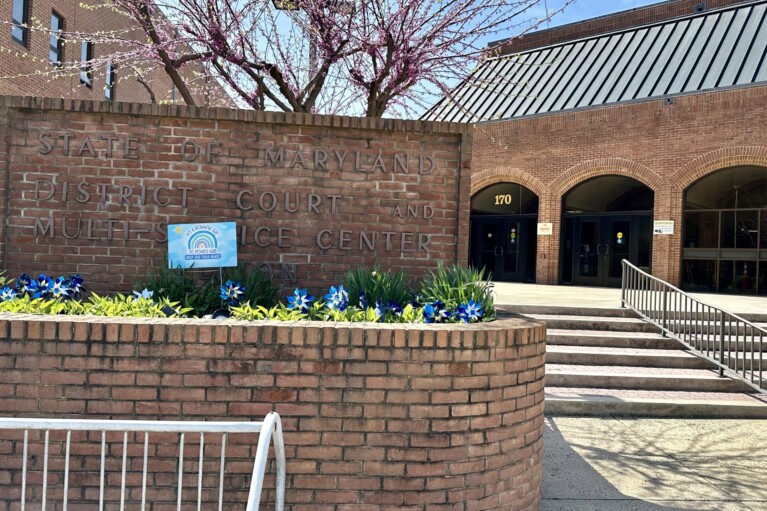

 Creative Commons Attribution
Creative Commons Attribution